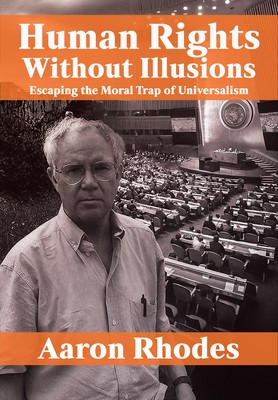
- We will send in 10–14 business days.
- Author: Aaron Rhodes
- Publisher: Academica Press
- ISBN-10: 1680533517
- ISBN-13: 9781680533514
- Format: 15.2 x 22.9 x 1.4 cm, kieti viršeliai
- Language: English
- SAVE -10% with code: EXTRA
Reviews
Description
In Human Rights Without Illusions, leading human rights advocate Aaron Rhodes traces the political and religious traditions that have led to prioritizing consensus among diverse nations as a prerequisite for upholding universal principles. The modern, global human rights regime sits on the foundation of Hellenistic stoicism and medieval Christendom, where natural law morally unified all of humanity. Drawing upon subsequent efforts to implement a secularized law of nations as promulgated natural law, and inspired by political progressivism, the international human rights system initiated in 1948 envisions a process of moral transformation on the basis of bureaucratic cooperation with institutions of the United Nations. By contrast, the natural rights tradition reflects a different form of universalism, one that focuses on a common understanding of human nature rather than intergovernmental consensus. The philosophy of natural rights, as crystallized in the Enlightenment, is skeptical of international formations, holding that interactions between governments occur in a state of nature without any overarching authority. Therefore, protecting human rights is possible only in nation-states, where the rules of civil society are legally enforceable. That does not render futile a campaign for improving respect for human rights around the world, however. Rhodes considers defending human rights and freedoms to be a moral duty, but human rights advocacy needs to free itself from the inevitable corruption of institutionalized universalism. Rhodes argues instead for a "human rights without illusions" consistent with the classical liberal principles that inspired America's Founding Fathers and shaped their belief that basic freedoms are realized in a bottom-up process, not a top-down one. Progress toward a spontaneous order of global human rights can be made if liberal societies project inherent freedom as a compelling moral principle, rather than subjecting it to legalistic rationalization and compromise in inclusive global institutions.
EXTRA 10 % discount with code: EXTRA
The promotion ends in 22d.14:00:27
The discount code is valid when purchasing from 10 €. Discounts do not stack.
- Author: Aaron Rhodes
- Publisher: Academica Press
- ISBN-10: 1680533517
- ISBN-13: 9781680533514
- Format: 15.2 x 22.9 x 1.4 cm, kieti viršeliai
- Language: English English
In Human Rights Without Illusions, leading human rights advocate Aaron Rhodes traces the political and religious traditions that have led to prioritizing consensus among diverse nations as a prerequisite for upholding universal principles. The modern, global human rights regime sits on the foundation of Hellenistic stoicism and medieval Christendom, where natural law morally unified all of humanity. Drawing upon subsequent efforts to implement a secularized law of nations as promulgated natural law, and inspired by political progressivism, the international human rights system initiated in 1948 envisions a process of moral transformation on the basis of bureaucratic cooperation with institutions of the United Nations. By contrast, the natural rights tradition reflects a different form of universalism, one that focuses on a common understanding of human nature rather than intergovernmental consensus. The philosophy of natural rights, as crystallized in the Enlightenment, is skeptical of international formations, holding that interactions between governments occur in a state of nature without any overarching authority. Therefore, protecting human rights is possible only in nation-states, where the rules of civil society are legally enforceable. That does not render futile a campaign for improving respect for human rights around the world, however. Rhodes considers defending human rights and freedoms to be a moral duty, but human rights advocacy needs to free itself from the inevitable corruption of institutionalized universalism. Rhodes argues instead for a "human rights without illusions" consistent with the classical liberal principles that inspired America's Founding Fathers and shaped their belief that basic freedoms are realized in a bottom-up process, not a top-down one. Progress toward a spontaneous order of global human rights can be made if liberal societies project inherent freedom as a compelling moral principle, rather than subjecting it to legalistic rationalization and compromise in inclusive global institutions.


Reviews